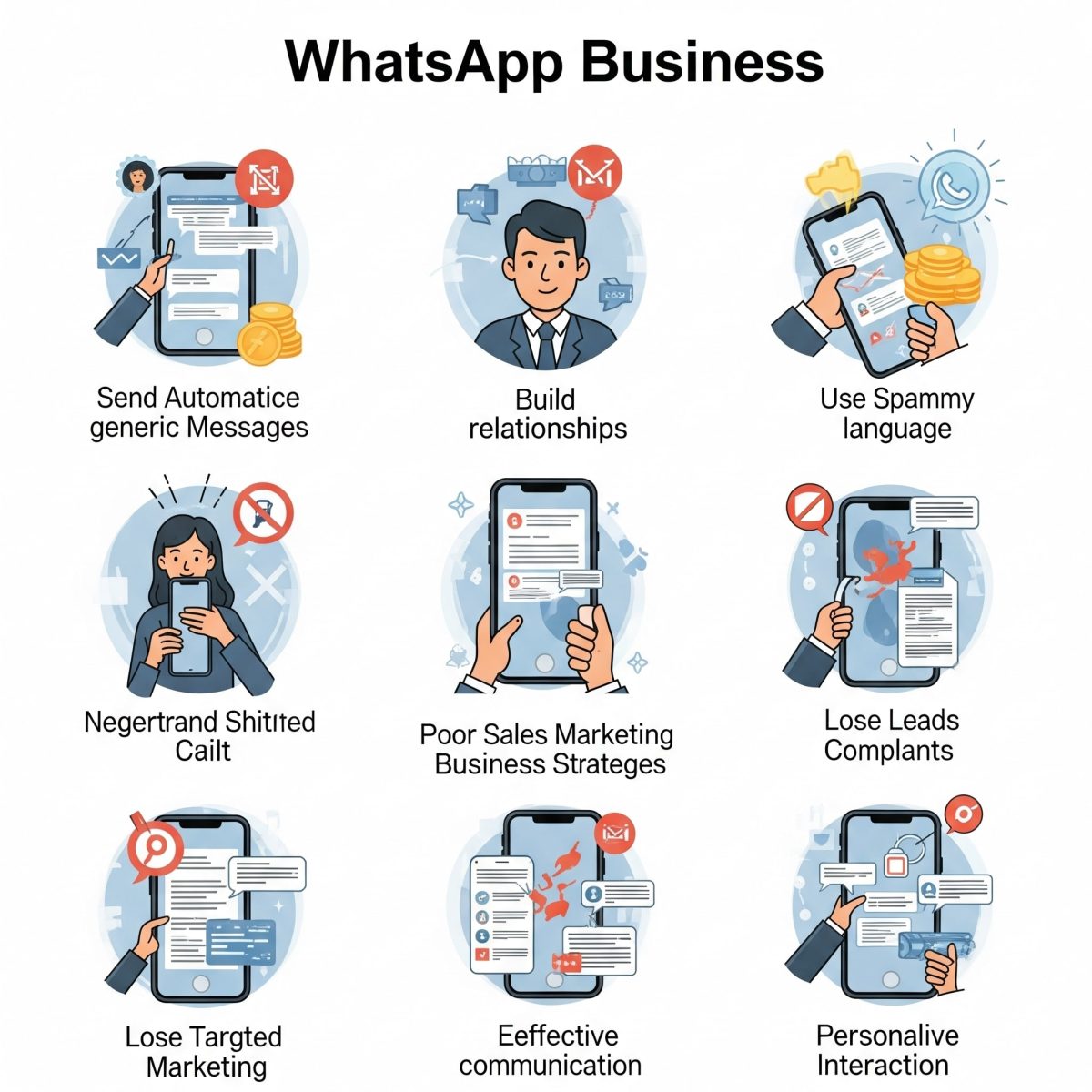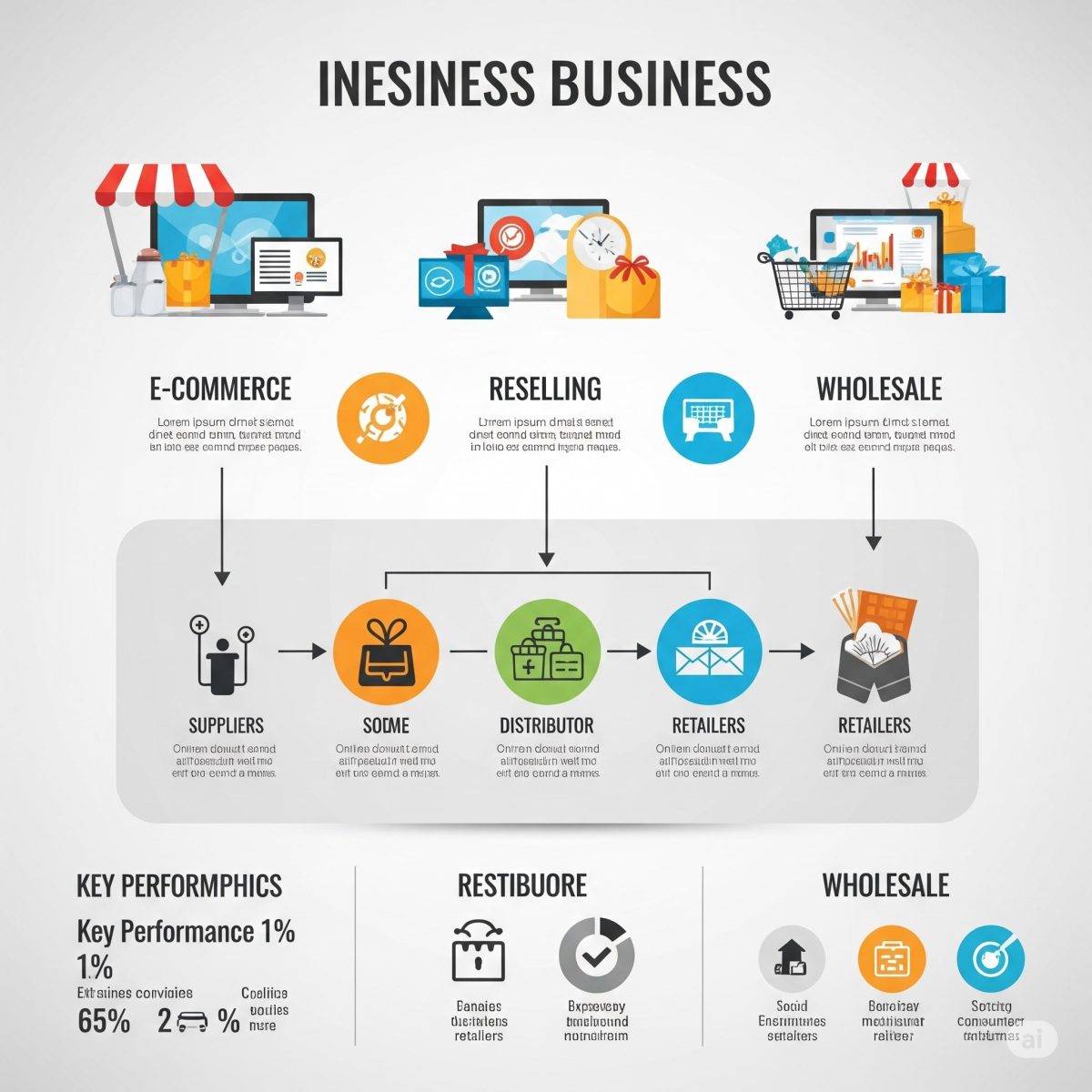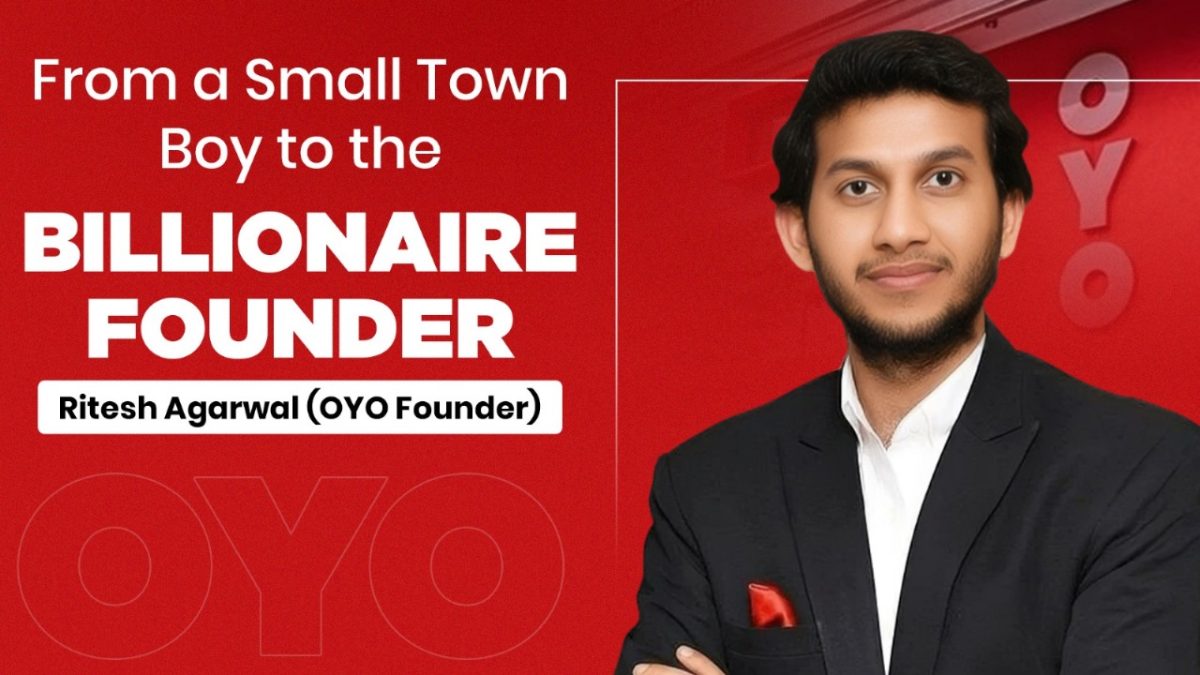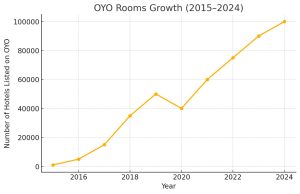WhatsApp is no longer a chatting app, it has become a powerful sales and marketing tool. Many people are now using WhatsApp Business. Using the right strategies, one can get, boost in sales, many new customers and build a strong connection with the existing ones. In this blog, we will discuss mistakes that we should avoid on WhatsApp Business.
-
NOT SEPARATING PERSONAL AND BUSINESS WHATSAPP
Using the same number for personal and business use creates blunders. One should use WhatsApp Business with a different number. This makes you look professional and work related emails don’t get mixed up.
You May Also Read:
How to use WhatsApp Catalog to sell products?
-
NEGLECTED BUSINESS PROFILE
People get uninterested if they do not find appropriate information. Fill your complete information like name, address, timings and emails etc. Update your profile regularly.
-
NOT MAKING CATALOG
WhatsApp provides the feature of catalog. It helps you post product’s name, photo, price, availability and other details. This makes the work of customers easy.
-
NOT SETTING ‘AUTO-REPLIES’ OR ‘QUICK-REPLIES’
Not setting ‘auto-replies’ is a grave mistake. Customers would go away if they ain’t answered on time. Set up ‘Greeting Messages’ for welcoming the customers and ‘Quick- Replies’ for when you ain’t available.
You May Also Read:
How to Increase Business Reach & Sales Using Facebook Page
-
SPAMMING
Don’t send offers and pictures daily. Send useful and informative messages twice or thrice a week. Take permission before adding someone on broadcast. Always give the option for unsubscribing.
USING BROADCAST INAPPROPRIATELY
Send messages to interested customers only. Texting people constantly without their permission would make them block you. Add personal touches to your messages.
-
SENDING UNATTRACTIVE, CONFUSING AND LONG TEXTS
Do not send unstructured, long messages without greetings and highlights. Use short, to the point messages. Try to use emojis, bullets etc. to make it more appealing.
-
LATE REPLIES TO CUSTOMER QUERIES
Don’t make customers wait for long. Reply within 24 hours. Check your WhatsApp regularly. Appoint a team to reply on time.
You May Also Read:
Startup Freedom or Franchise Security – What’s the Right Path for You?
-
NEGLECTING CUSTOMER REVIEWS AND FEEDBACKS
Ask customers for reviews when they are satisfied. Ask about your service after sale or delivery. Post good reviews on Instagram story or WhatsApp status.
-
NOT USING WHATSAPP STATUS
WhatsApp status is a very good way to reach people. Post status everyday. It is a free marketing tool, so use it wisely.
CONCLUSION
WhatsApp is a free and convenient platform to grow your business. The mistakes above are very common, but can be rectified easily. You can make your WhatsApp Business strong, if you make a good profile, have clear communication and reply on time.



 This graph clearly shows how OYO Rooms grew rapidly from 2015 to 2024. From just 1,000 hotels in 2015, OYO expanded to over 100,000 hotels worldwide by 2024. It’s a strong example of what consistent vision and hard work can achieve.
This graph clearly shows how OYO Rooms grew rapidly from 2015 to 2024. From just 1,000 hotels in 2015, OYO expanded to over 100,000 hotels worldwide by 2024. It’s a strong example of what consistent vision and hard work can achieve.